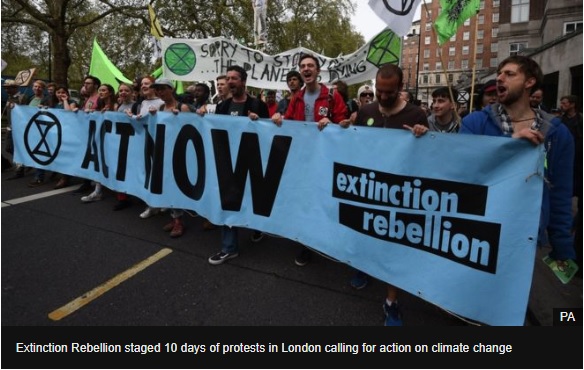
Greenhouse gas emissions in the UK will be cut to almost zero by 2050, under the terms of a new government plan to tackle climate change.
Prime Minister Theresa May said reducing pollution would also benefit public health and cut NHS costs.
Britain is the first major nation to propose this target - and it has been widely praised by green groups.
But some say the phase-out is too late to protect the climate, and others fear that the task is impossible.
The UK already has a 2050 target - to reduce emissions by 80%. That was agreed by MPs under the Climate Change Act in 2008, but will now be amended to the new, much tougher, goal.
What does net zero mean?
The actual terminology used by the government is "net zero" greenhouse gases by 2050.
That means emissions from homes, transport, farming and industry will have to be avoided completely or - in the most difficult examples - offset by planting trees or sucking CO2 out of the atmosphere.
The government's advisory Committee on Climate Change recommended the "net zero" target in May.
Its report said if other countries followed the UK, there was a 50-50 chance of staying below the recommended 1.5C temperature rise by 2100.
A 1.5C rise is considered the threshold for dangerous climate change.
Laurence Tubiana, an architect of the crucial Paris climate agreement, told the BBC: "This is a historic commitment that will reverberate right around the world.
"All eyes will now turn on the rest of the EU to match this pledge."
Theresa May said the UK led the world to wealth through fossil fuels in the industrial revolution, so it was appropriate for Britain to lead in the opposite direction.
"We have made huge progress in growing our economy and the jobs market while slashing emissions," she said.
"Now is the time to go further and faster to safeguard the environment for our children. We must lead the world to a cleaner, greener form of growth."

